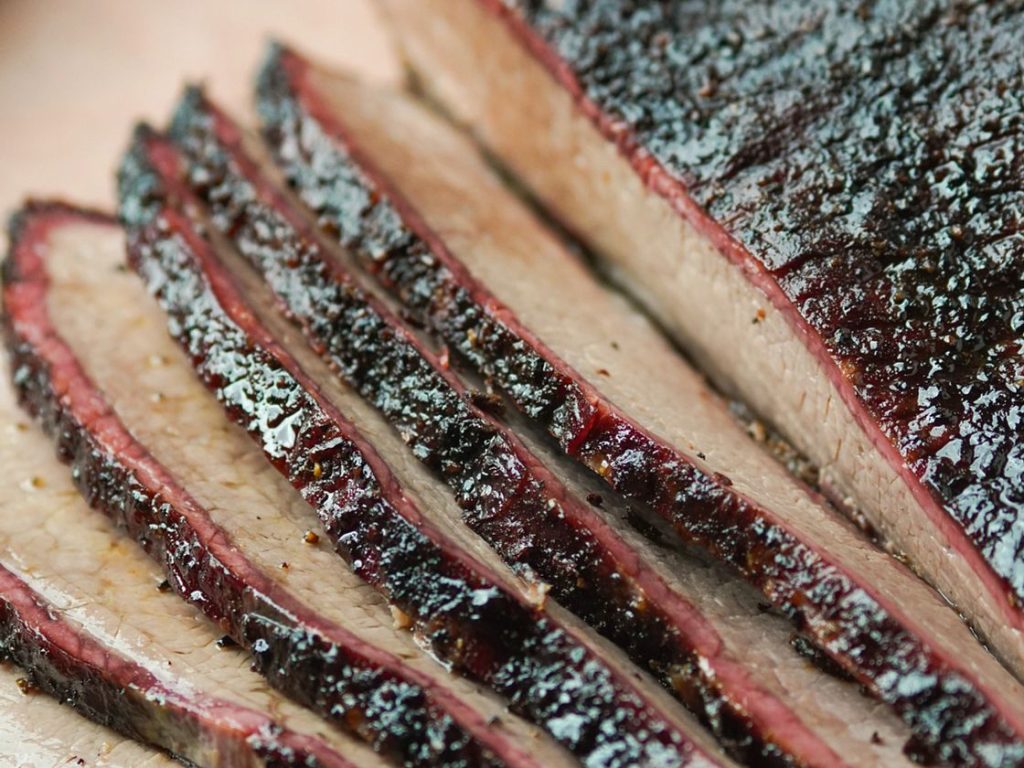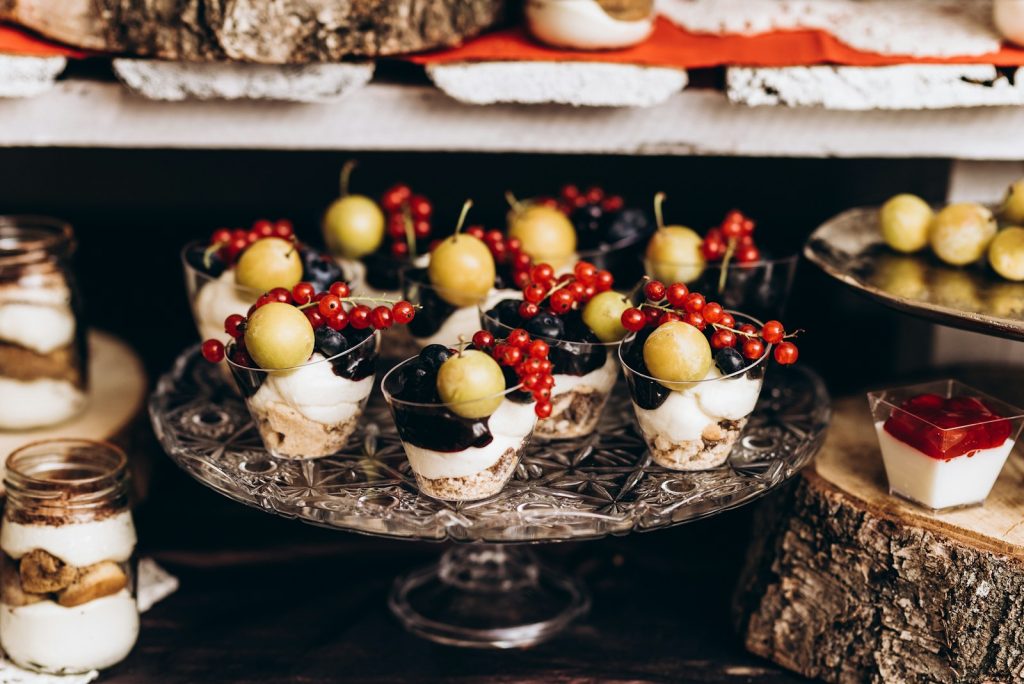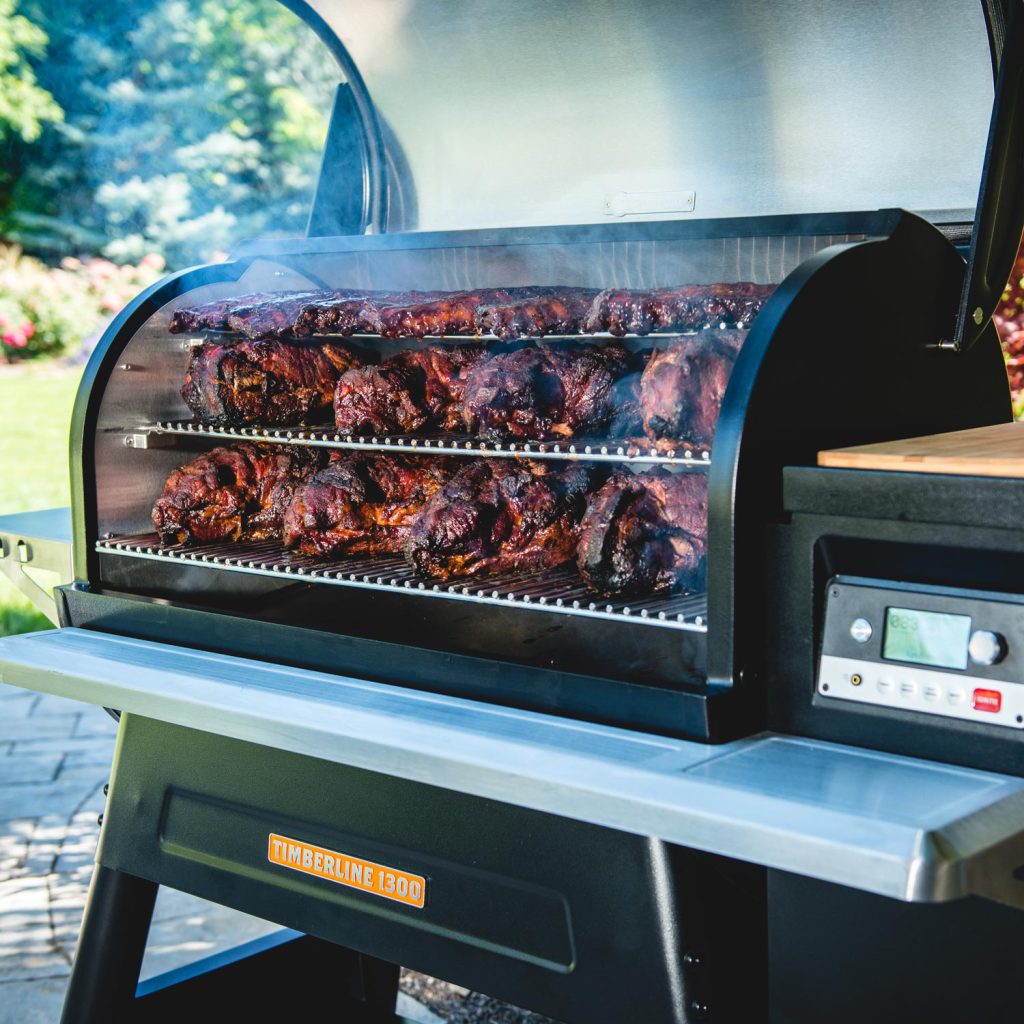Selecting the perfect BBQ Tools, especially bbq grill can significantly enhance your outdoor cooking experience. With various types available—charcoal, gas, electric, and pellet—each offering unique advantages and disadvantages, making an informed decision is crucial. In our Barbecue Masterclass on the coast we work with Smokers and Charcoal grills, yet this article delves into each type, providing comprehensive details to help you choose the right grill for your needs.
1. Charcoal Grills
Charcoal grills are the traditional choice for many BBQ enthusiasts, known for imparting a rich, smoky flavor to food. These grills use charcoal briquettes or lump charcoal as fuel, providing high heat ideal for searing and adding a distinctive taste to grilled items.
Pros
- Flavor: Charcoal grills are unparalleled in providing a smoky, authentic BBQ flavor. The combustion of charcoal produces smoke that penetrates the food, enhancing its taste.
- Heat: They can reach very high temperatures, making them perfect for searing steaks and achieving a nice crust.
- Cost: Generally, charcoal grills are less expensive upfront compared to gas and pellet grills. Charcoal itself is also relatively inexpensive.
- Versatility: Charcoal grills can be used for direct grilling, indirect grilling, and smoking, offering flexibility in cooking styles.
Cons
- Convenience: Charcoal grills require more time and effort to set up, heat up, and clean. Lighting the charcoal can be a bit of a process, and getting the coals to the right temperature takes practice.
- Temperature Control: Achieving and maintaining a consistent temperature can be challenging. Adjusting vents and the arrangement of coals is necessary to regulate heat.
- Cleanup: Ash disposal can be messy and time-consuming. Regular cleaning is required to keep the grill in good working condition.

Best Uses
Charcoal grills are best for enthusiasts who enjoy the process of grilling and value flavor above convenience. They are ideal for traditional BBQ dishes like ribs, steaks, and burgers, which benefit from the smoky flavor.
Example
The Weber Original Kettle Premium Charcoal Grill is a popular choice. It features a large cooking area, adjustable dampers for temperature control, and a one-touch cleaning system for easy ash removal.
Comparison Table
| Feature | Charcoal Grill |
|---|---|
| Fuel Type | Charcoal briquettes or lump charcoal |
| Flavor | Smoky, rich BBQ flavor |
| Heat Control | Manual (via vents and coal placement) |
| Initial Cost | Low to Moderate |
| Running Cost | Low |
| Setup Time | Long (15-20 minutes to heat up) |
| Cleanup | Time-consuming (ash disposal) |
| Best For | Flavor enthusiasts, traditional BBQ |
2. Gas Grills
Gas grills are favored for their convenience and ease of use. They use propane or natural gas as fuel and ignite with the push of a button. Gas grills offer precise temperature control, making them versatile for various cooking techniques.
Pros
- Convenience: Gas grills heat up quickly, typically within 10-15 minutes. Starting and adjusting a gas grill is straightforward, allowing for quick meal preparation.
- Ease of Use: Simply turn a knob to ignite the grill and adjust the flame to control the temperature.
- Maintenance: Easier to clean compared to charcoal grills, as there is no ash. Drip trays collect grease, making disposal simpler.
- Temperature Control: Precise temperature control with multiple burners allows for different cooking zones, ideal for both direct and indirect grilling.
Cons
- Flavor: Gas grills don’t provide the same smoky flavor as charcoal or pellet grills. While wood chips can be added to a smoker box to enhance flavor, it’s not as pronounced.
- Safety: There is a risk of gas leaks, which can be hazardous. Regular checks and maintenance are required to ensure safety.
- Cost: Higher initial cost compared to charcoal grills, and propane tanks need to be replaced regularly.
Best Uses
Gas grills are ideal for those who want a quick, convenient grilling experience. They are perfect for everyday cooking, including chicken breasts, fish, and vegetables, and are great for impromptu grilling sessions.
Example
The Weber Genesis II E-315 is a top-rated gas grill, offering high performance with features like a built-in thermometer, ample cooking space, and an efficient grease management system.

Comparison Table
| Feature | Gas Grill |
|---|---|
| Fuel Type | Propane or natural gas |
| Flavor | Moderate, can be enhanced with wood chips |
| Heat Control | Precise (via burners) |
| Initial Cost | Moderate to High |
| Running Cost | Moderate (propane/natural gas) |
| Setup Time | Short (5-10 minutes to heat up) |
| Cleanup | Easier (drip trays) |
| Best For | Convenience, quick meals, everyday use |
3. Electric Grills
Electric grills are the most convenient and safest option, especially for small spaces like balconies or patios. They plug into an electrical outlet and are ready to use with the flip of a switch.
Pros
- Ease of Use: Simply plug in, set the temperature, and start grilling. No need to worry about running out of fuel.
- Safety: No open flames, reducing the risk of fire. Ideal for indoor or apartment use.
- Portability: Most electric grills are compact and easy to transport, making them suitable for indoor and outdoor use.
- Maintenance: Electric grills are easy to clean, with non-stick grilling surfaces and drip trays to catch grease.
Cons
- Flavor: Electric grills lack the smoky flavor that charcoal and pellet grills provide. The flavor profile is more akin to cooking on a stovetop.
- Power Source: Dependence on an electrical outlet can limit where you can use them. They are not ideal for camping or areas without power.
- Size: Typically smaller, making them less suitable for large gatherings. They are best for small families or couples.
Best Uses
Electric grills are perfect for those living in apartments or condos where open flames are prohibited. They are great for quick, simple meals like grilled sandwiches, veggies, and small cuts of meat.
Example
The Char-Broil Patio Bistro Electric Grill is a highly recommended model, offering good performance and portability. It features a compact design, an adjustable temperature dial, and easy-to-clean grates.
Comparison Table
| Feature | Electric Grill |
|---|---|
| Fuel Type | Electricity |
| Flavor | Mild, lacks smokiness |
| Heat Control | Precise (via temperature dial) |
| Initial Cost | Low to Moderate |
| Running Cost | Low |
| Setup Time | Very short (instant heat) |
| Cleanup | Very easy (non-stick surfaces) |
| Best For | Indoor use, small spaces, convenience |

4. Pellet Grills
Overview
Pellet grills use wood pellets as fuel, providing a unique combination of flavor and convenience. They are known for their ability to maintain low, steady temperatures for long periods, making them excellent for smoking.
Pros
- Flavor: Imparts a deep, smoky flavor similar to charcoal grills. The variety of wood pellets available (e.g., hickory, mesquite) allows for customizable flavor profiles.
- Temperature Control: Excellent for low and slow cooking, maintaining steady temperatures effortlessly. Digital control panels allow for precise adjustments.
- Versatility: Can grill, smoke, bake, roast, and more. Pellet grills are highly versatile, suitable for a wide range of cooking methods.
Cons
- Cost: Higher initial cost and ongoing cost of wood pellets. Quality pellet grills can be expensive, and wood pellets need to be purchased regularly.
- Convenience: Requires electricity to operate the auger and fan systems. This can limit portability and use in areas without power.
- Portability: Generally less portable than other grill types due to their size and the need for electricity.
Best Uses
Pellet grills are perfect for smoking enthusiasts who want to achieve a rich, smoky flavor without the hassle of managing a charcoal fire. They are ideal for slow-cooking large cuts of meat like brisket and pork shoulder, as well as versatile enough for baking and roasting.
Example
The Traeger Pro Series 575 is a standout pellet grill, known for its versatility and high-quality build. It features WiFIRE technology for remote control, a large cooking area, and precise temperature control.
Comparison Table
| Feature | Pellet Grill |
|---|---|
| Fuel Type | Wood pellets |
| Flavor | Smoky, rich flavor |
| Heat Control | Precise (via digital control panel) |
| Initial Cost | High |
| Running Cost | Moderate (wood pellets) |
| Setup Time | Moderate (10-15 minutes to heat up) |
| Cleanup | Moderate (ash disposal) |
| Best For | Smoking, versatile cooking, flavor enthusiasts |
Conclusion
Choosing the right BBQ grill depends on your priorities, whether it’s flavor, convenience, cost, or versatility. Charcoal grills are great for flavor enthusiasts, gas grills for convenience seekers, electric grills for safety and portability, and pellet grills for versatility and smoking aficionados. By understanding the pros and cons of each type, you can make an informed decision that best suits your grilling needs.
References
- “Charcoal vs Gas vs Pellet vs Electric: which type of barbecue is best for you?” T3. Retrieved from: https://www.t3.com/features/charcoal-vs-gas-vs-pellet-vs-electric-which-type-of-barbecue-is-best-for-you
- “The Ultimate Guide To Choosing The Right Barbecue Grill,” Proud Souls BBQ. Retrieved from: https://www.proudsoulsbbq.com/guide-to-choosing-the-right-barbecue-grill
- “Charcoal, Gas, or Electric Grill: Which is Best?” The Spruce Eats. Retrieved from: https://www.thespruceeats.com/charcoal-vs-gas-vs-electric-grill-2718580
- “Pellet vs. Gas Grills: Which Is Right for You?” The Family Handyman. Retrieved from: https://www.familyhandyman.com/project/pellet-vs-gas-grills/
- “Pellet Grill vs. Charcoal vs. Gas,” Grilla Grills. Retrieved from: https://www.grillagrills.com/blog/pellet-grill-vs-charcoal-vs-gas



